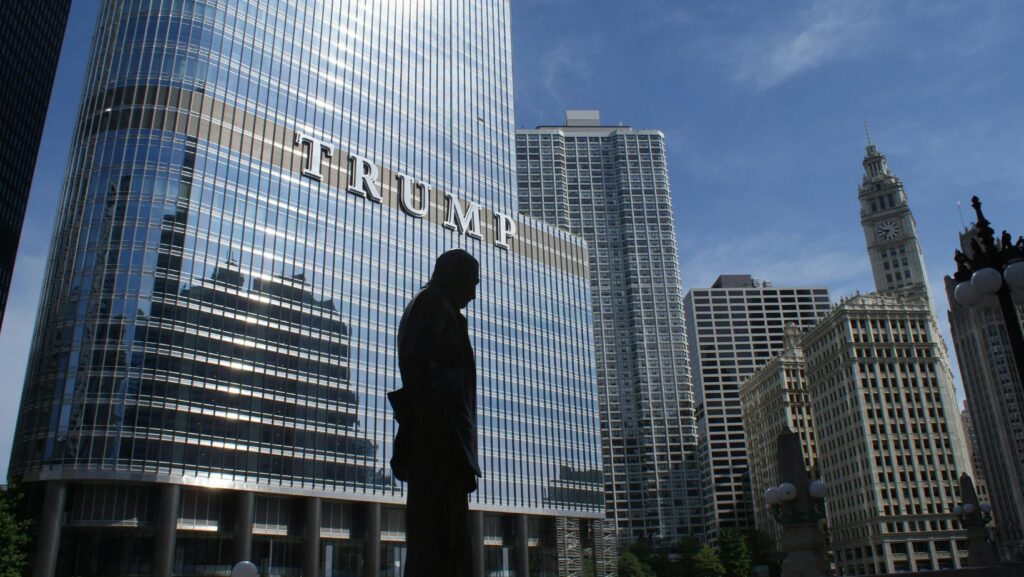In a surprising turn of events, the Trump campaign has directed its attention towards the military leadership following a significant breach. This unexpected move comes after a hacking incident at Arlington, raising questions about cybersecurity and the integrity of national defense systems. As the campaign shifts focus, it underscores the growing concerns over digital threats in an increasingly interconnected world.
The implications of this development are far-reaching, as it not only highlights vulnerabilities within the military but also suggests a potential shift in the campaign’s strategy. By turning their fire on army leadership, the Trump campaign seems to be tapping into a broader narrative about accountability and national security. This focus on military issues could resonate with voters concerned about the safety and resilience of the country’s defense infrastructure.
Trump Campaign Turns Fire on Army Leadership ‘Hacks’ After Arlington Fiasco
 The incident involved a cyber attack targeting U.S. Army leadership, exposed in Arlington, resulting in potential data breaches. Attackers accessed sensitive information, sparking concerns about cybersecurity protocols. This breach led to heightened scrutiny of military cyber defenses. The Trump campaign’s reaction to this hacking emphasized the need for prioritizing national security in political discourse. By focusing on this incident, the campaign aimed to address voter concerns regarding military readiness and data protection. The overlap of political interests and military cybersecurity placed a spotlight on the necessity for reinforced digital safeguards.
The incident involved a cyber attack targeting U.S. Army leadership, exposed in Arlington, resulting in potential data breaches. Attackers accessed sensitive information, sparking concerns about cybersecurity protocols. This breach led to heightened scrutiny of military cyber defenses. The Trump campaign’s reaction to this hacking emphasized the need for prioritizing national security in political discourse. By focusing on this incident, the campaign aimed to address voter concerns regarding military readiness and data protection. The overlap of political interests and military cybersecurity placed a spotlight on the necessity for reinforced digital safeguards.
Background on Army Leadership
U.S. Army leadership plays a crucial role in maintaining national security. With recent cybersecurity concerns, understanding the structure and key individuals becomes essential.
Key Figures Involved
Army leadership involves several prominent figures. The Secretary of the Army, the highest civilian leader, oversees policy direction and budgeting. Senior military leaders, like the Chief of Staff, guide operational strategy and advise the President. These positions, filled by experienced defense professionals, ensure effective military governance and preparedness.
Historical Context of Army Leadership
 Army leadership has evolved throughout U.S. history. Initially, it focused on frontier defense but expanded to global responsibilities after World War II. Significant changes occurred following the Goldwater-Nichols Act of 1986, which redefined military command. This evolution reflects shifts in geopolitical challenges and technological advancements, including the rise of cyber threats, necessitating a dynamic and responsive leadership approach.
Army leadership has evolved throughout U.S. history. Initially, it focused on frontier defense but expanded to global responsibilities after World War II. Significant changes occurred following the Goldwater-Nichols Act of 1986, which redefined military command. This evolution reflects shifts in geopolitical challenges and technological advancements, including the rise of cyber threats, necessitating a dynamic and responsive leadership approach.
The Trump Campaign’s Reaction
The Trump campaign swiftly addressed the Army leadership hack’s impact. Emphasizing security, the campaign used the incident to focus its messaging on potential cyber vulnerabilities.
Public Statements
Campaign spokespeople publicly expressed concern regarding military data breaches. In official statements, they often highlighted cybersecurity as a top priority, positioning it as crucial to the nation’s defense. By stressing these weaknesses, they suggested stronger safeguards. This approach aimed to reassure voters and underline the campaign’s commitment to protecting sensitive military information.
Political Implications
 The hack incident influenced the campaign’s strategy, pivoting discussions towards national security issues. By doing so, the campaign aligned itself with voter concerns about defense readiness and accountability. This focus not only addressed immediate fears but also sought to redirect the national dialogue towards comprehensive security reforms. The strategic emphasis on cybersecurity showcased the campaign’s adaptability to emerging threats and positioned it as proactive in facing future challenges.
The hack incident influenced the campaign’s strategy, pivoting discussions towards national security issues. By doing so, the campaign aligned itself with voter concerns about defense readiness and accountability. This focus not only addressed immediate fears but also sought to redirect the national dialogue towards comprehensive security reforms. The strategic emphasis on cybersecurity showcased the campaign’s adaptability to emerging threats and positioned it as proactive in facing future challenges.
Analysis of the Hack
The Trump campaign’s focus on cybersecurity and military leadership underscores the increasing importance of digital defense in political discourse. By addressing the vulnerabilities exposed by the Arlington hack, the campaign not only highlights the need for robust data protection but also aligns itself with voter concerns about national security. This strategic pivot demonstrates an awareness of the evolving threat landscape and positions the campaign as responsive to contemporary challenges.
The incident serves as a reminder of the critical role military leadership plays in safeguarding national interests. As cyber threats continue to rise, the emphasis on accountability and readiness becomes paramount. The campaign’s ability to adapt its messaging to address these concerns reflects a broader understanding of the intersection between politics and security. This focus on comprehensive reforms and proactive measures resonates with an electorate increasingly attuned to the complexities of modern defense strategies, potentially influencing both voter perception and the broader national agenda.



